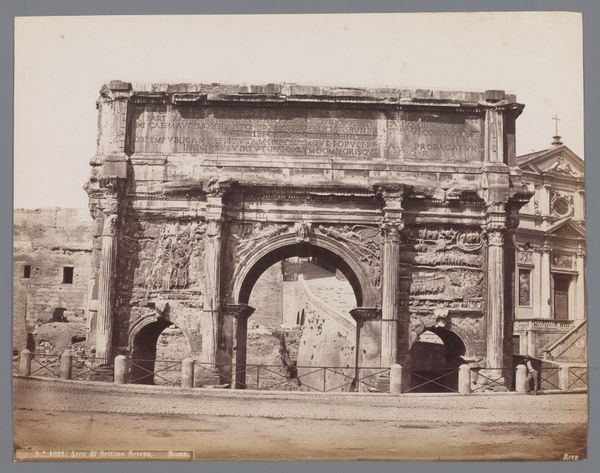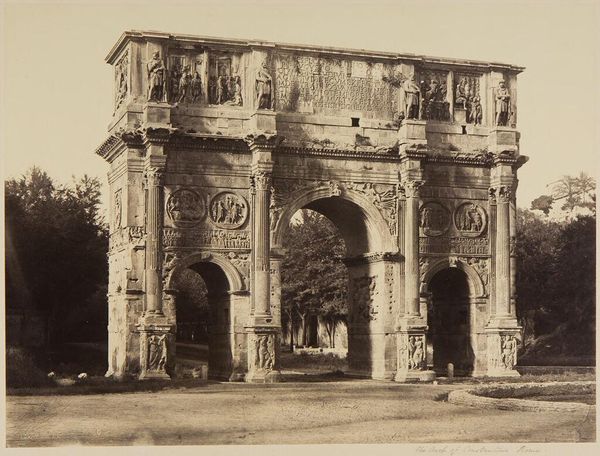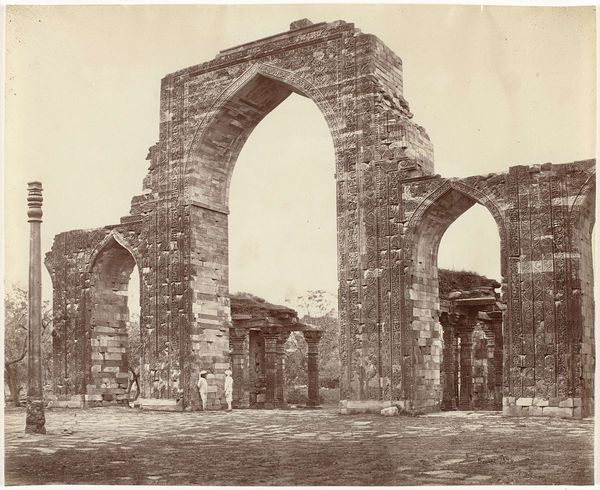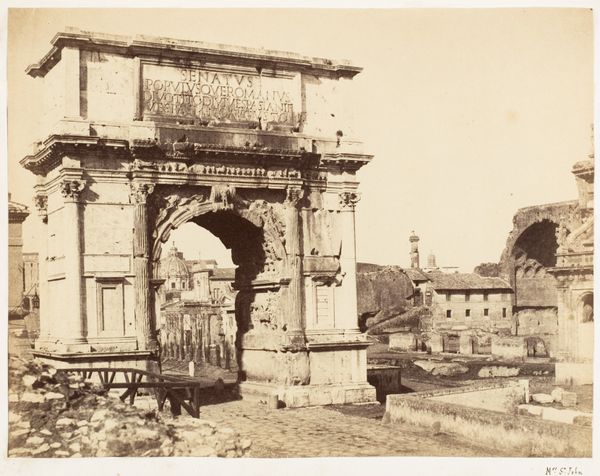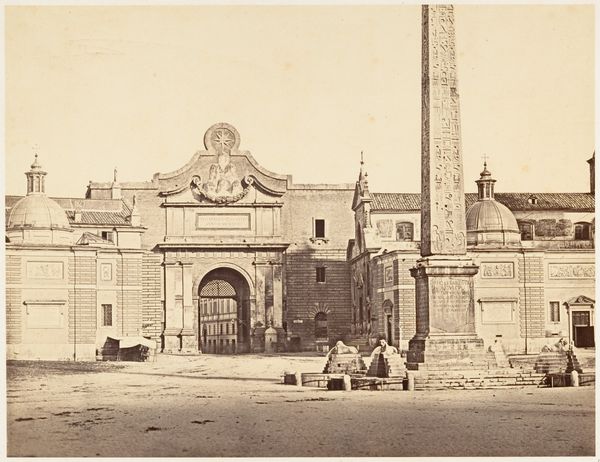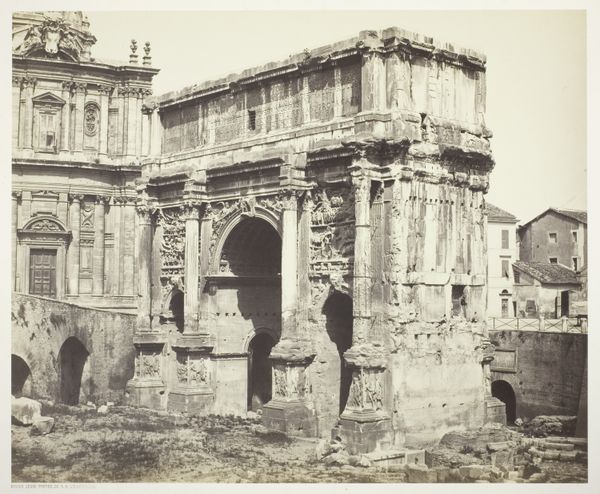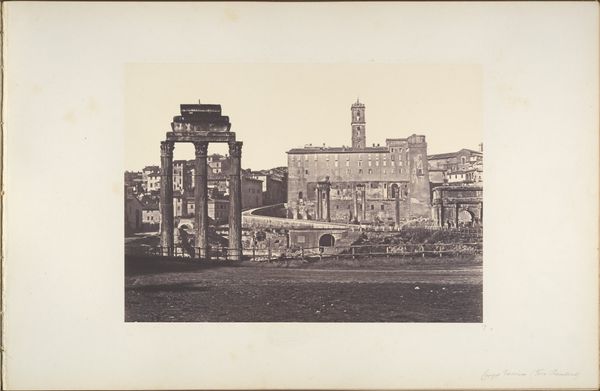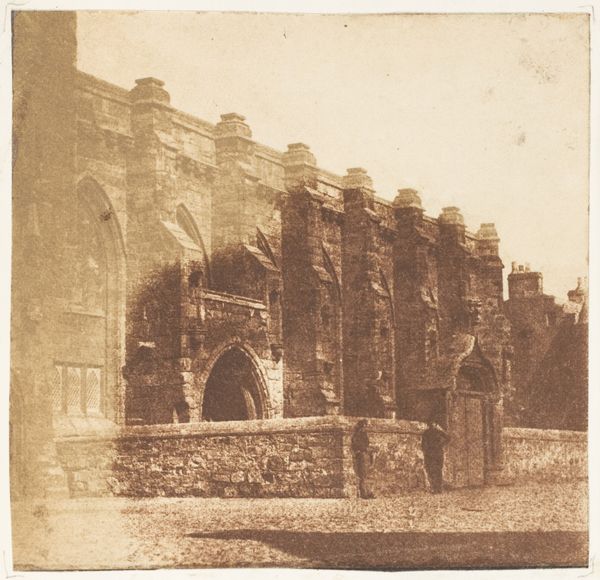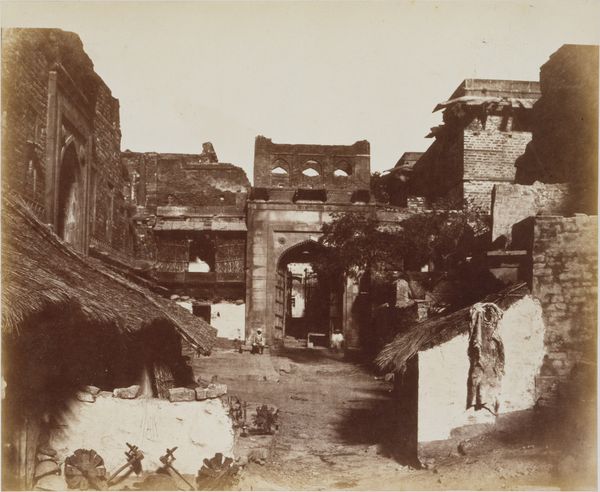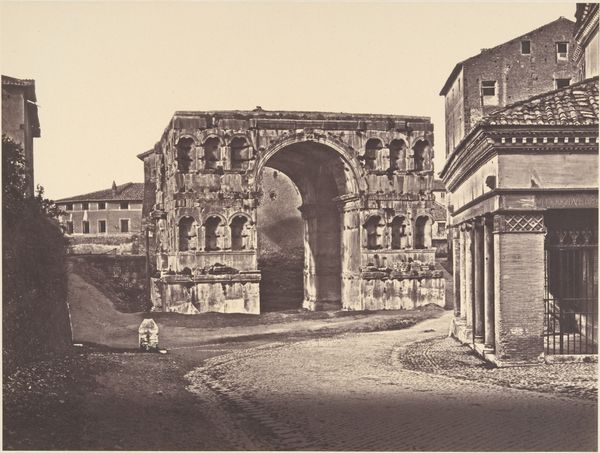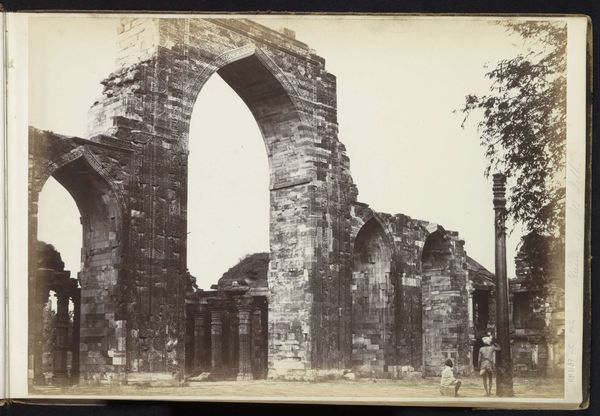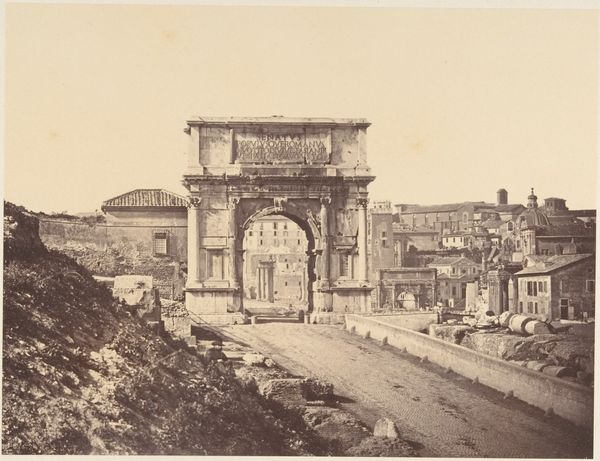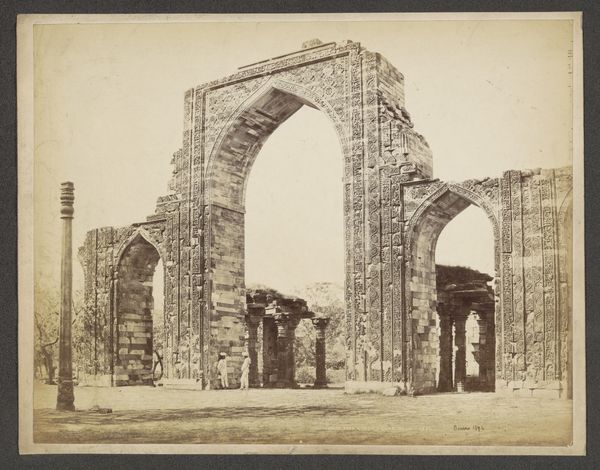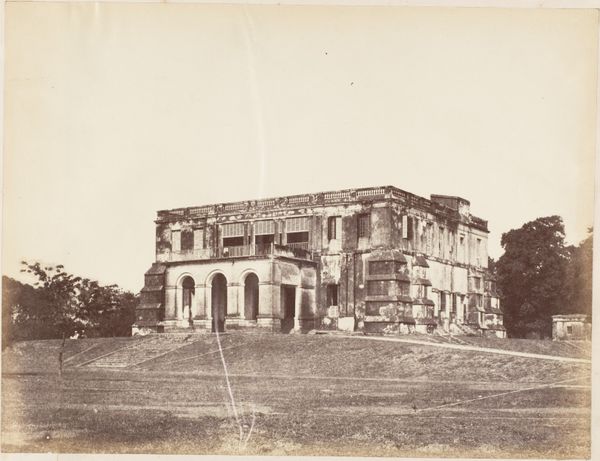
print, photography, albumen-print, architecture
#
architectural sketch
#
neoclacissism
# print
#
landscape
#
historic architecture
#
photography
#
historical photography
#
arch
#
19th century
#
architectural drawing
#
architecture drawing
#
cityscape
#
albumen-print
#
architecture
Dimensions: Image: 8 11/16 × 11 5/16 in. (22 × 28.7 cm) Sheet: 12 1/8 × 18 1/2 in. (30.8 × 47 cm)
Copyright: Public Domain
This photograph by Eugène Constant captures Rome’s Arch of Septimius Severus, a monument laden with symbols of power and victory. Dedicated in AD 203 to honor Emperor Septimius Severus and his sons, the arch is adorned with intricate reliefs depicting scenes from their military campaigns against the Parthians. The arch as a motif has carried deep significance across cultures and history. In ancient Rome, it symbolized triumph and imperial authority, designed to evoke awe and obedience. This echoes in Renaissance and Baroque architecture, where arches frame entrances to palaces and cathedrals. Think of the gates of Ishtar, predating Rome, which served as ceremonial entrances to the city of Babylon. Consider the emotional impact of passing under such a structure: it’s a passage from one state to another, a threshold into power. The collective memory of such symbols is deeply ingrained, resonating with our subconscious understanding of authority and transition. This photograph, therefore, is not just a depiction of a historical monument; it is a portal into understanding the enduring human need to monumentalize power and victory.
Comments
No comments
Be the first to comment and join the conversation on the ultimate creative platform.
